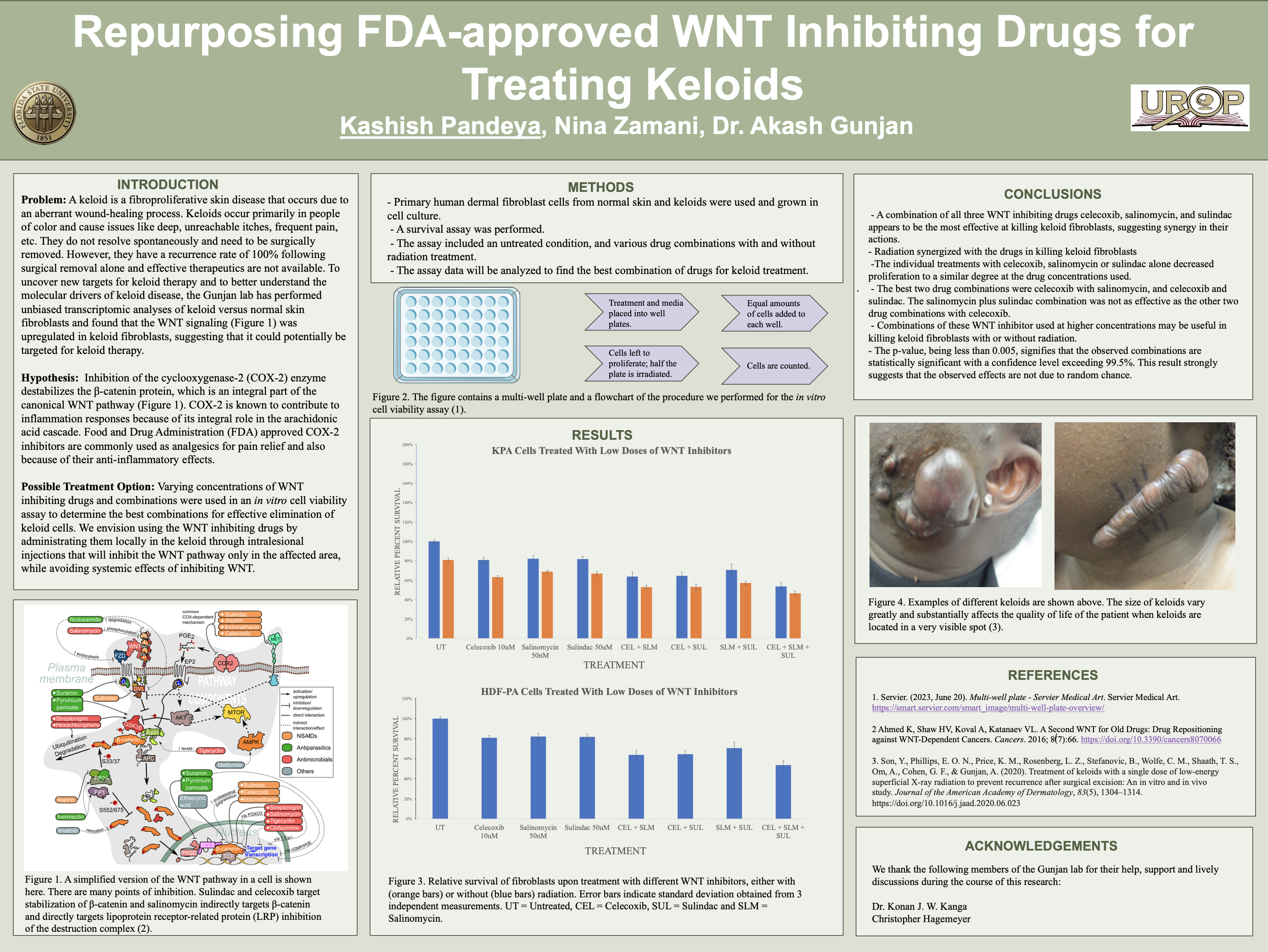Research Symposium
24th annual Undergraduate Research Symposium, April 3, 2024
Kashish Pandeya Poster Session 5: 4:00 pm - 5:00 pm/245

BIO
Hello! I am a second-year, pre-medical, IMS major from Tallahassee. I enjoy Jane Austen novels, playing musical instruments, and tennis. My research, at Dr. Gunjan's lab, is testing various FDA-approved drugs on keloid cell proliferation. I am passionate about cell culture research and determined to test therapeutics that can decrease keloid growth. For this reason, I intend to continue keloid research at Dr. Gunjan's lab in the College of Medicine: Biomedical Sciences Department.
Repurposing FDA-approved WNT Inhibiting Drugs for Treating Keloids
Authors: Kashish Pandeya, Dr. Akash GunjanStudent Major: Interdisciplinary Medical Sciences: Pre-Clinical Professions
Mentor: Dr. Akash Gunjan
Mentor's Department: Biomedical Sciences Mentor's College: College of Medicine Co-Presenters:
Abstract
Keloids are fibroproliferative skin lesions that occur primarily in people with dark skin due to an aberrant wound-healing process. Keloids cause deep, unreachable itches, and frequent pain, and are a cause of significant social, emotional, and physical distress, leading to a poor quality of life. They do not resolve spontaneously and need to be surgically removed. However, they have a recurrence rate of 100% following surgical removal alone. Hence, better therapeutics to treat and prevent keloid recurrence are needed.
The Wnt signaling pathway has been connected to fibroproliferation in keloids. Wnt signaling is often overactive in keloid tissue. Therapeutic inhibition of this pathway is relatively novel since Wnt is an essential pathway that promotes cell proliferation and is required for maintaining normal function in tissues and organs. Hence, we hypothesize that Wnt pathway inhibition may decrease the proliferative nature of keloid cells, especially if done locally within or on the diseased tissue. Inhibition of the cyclooxygenase-2 (COX-2) enzyme destabilizes the β‑catenin protein, an integral part of the canonical Wnt pathway. COX-2 inhibitors are well studied because of their anti-inflammatory effects and are commonly used as analgesics for pain relief. Effects of inhibiting the Wnt pathway were measured by testing the survival of keloid dermal fibroblast cells in vitro following treatments with different FDA-approved COX-2 inhibitors that also attenuate Wnt signaling. Varying concentrations of the drugs and combinations were used in an in vitro cell viability assay to determine the best combinations for effectively eliminating keloid cells.
Keywords: WNT, Inhibitors, Keloid, Cell

